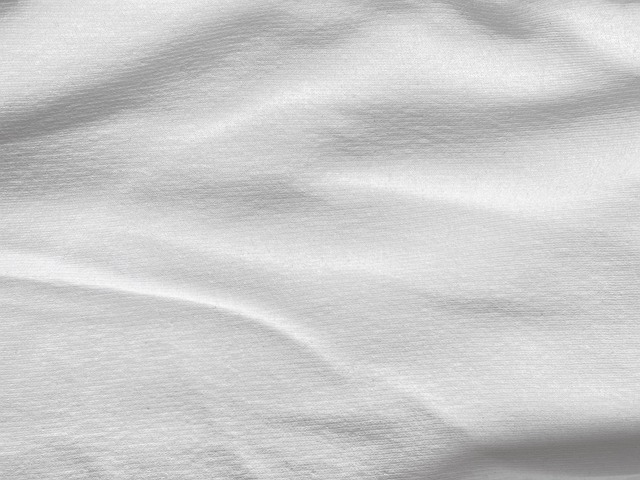Collagen, essential for skin elasticity and structure, declines with age, leading to wrinkles. Collagen-boosting therapies, both non-invasive and surgical, offer effective solutions for wrinkle reduction. Topical approaches like peptides, retinoids, and vitamin C stimulate collagen synthesis directly. Surgical options such as fillers and microneedling provide permanent results. Non-invasive treatments like radiofrequency and laser technology also achieve wrinkle reduction without downtime. At-home care routines focusing on hydration, diet, and exercise support collagen health. Future advancements include gene therapy, AI, and advanced imaging for personalized treatment plans, aiming to make effective skincare more accessible for significant wrinkle reduction.
“Unveil the secrets to achieving youthful, radiant skin with our comprehensive guide to collagen boosting therapies. Collagen, the skin’s foundation, plays a pivotal role in wrinkle reduction and overall skin health. As we age, collagen depletion becomes a natural process, leading to fine lines and loss of elasticity. This article explores various strategies to unlock collagen production, from powerful ingredients and topical treatments to surgical enhancements. Discover non-invasive options and at-home care tips for supporting collagen health, ensuring you stay ahead in the quest for a timeless complexion.”
Understanding Collagen: The Skin's Foundation

Collagen is a protein that acts as the skin’s foundation, providing structural support and elasticity. It plays a crucial role in maintaining youthful-looking skin by promoting skin hydration, reducing wrinkle formation, and enhancing overall texture. As we age, natural collagen production declines, leading to visible signs of aging like fine lines and sagging skin.
Understanding collagen’s vital function is essential when considering skincare treatments aimed at wrinkle reduction. Collagen-boosting therapies seek to stimulate the body’s natural collagen synthesis, offering a non-invasive approach to reversing certain signs of aging. These treatments have gained popularity due to their potential to rejuvenate the skin, providing a more supple and youthful appearance without surgical procedures.
Aging and Collagen Depletion: A Natural Process

Aging is a natural process that comes with several physical changes, one of which is the gradual depletion of collagen in our skin. Collagen, a protein responsible for providing structure and elasticity to our skin, plays a pivotal role in maintaining youthful-looking skin. As we age, our bodies produce less collagen, leading to a variety of signs of aging, notably wrinkles and reduced skin elasticity. This natural decline can be accelerated by various factors such as exposure to UV radiation, environmental stressors, and lifestyle choices.
The result of this collagen depletion is skin that appears thinner, less firm, and more prone to fine lines and wrinkles. Understanding this process is crucial in appreciating the effectiveness of collagen-boosting therapies aimed at wrinkle reduction. These treatments seek to stimulate the body’s natural collagen production or introduce exogenous collagen to fill in the gaps left by aging, thereby reversing some of the visible signs of skin aging.
Unlocking Collagen Production: Topical Approaches

Collagen is a key component in maintaining youthful skin, offering structural support and promoting elasticity. Unlocking its production can be a game-changer in the quest for wrinkle reduction. Topical approaches have emerged as powerful tools to stimulate collagen synthesis directly at the skin’s surface. These methods involve the application of specialized ingredients that act as signal boosters, encouraging the body to produce more collagen on its own.
One popular strategy involves using topically applied peptides and vitamin C. Peptides mimic specific signals that activate collagen production, while vitamin C acts as an antioxidant, protecting the skin and promoting a healthy environment for collagen formation. Other effective ingredients include retinoids and certain plant extracts, which have been shown to enhance collagen synthesis, leading to improved skin texture and reduced wrinkle appearance.
Powerhouse Ingredients for Collagen Stimulation

Collagen is a protein that acts as the backbone of our skin, providing structure and elasticity. As we age, collagen production naturally decreases, leading to visible signs of aging like wrinkles. Fortunately, certain ingredients have been proven to stimulate collagen synthesis, offering a potent solution for wrinkle reduction.
Key ingredients such as vitamin C, retinol, and peptides are recognized for their ability to supercharge the skin’s natural collagen production. Vitamin C, a powerful antioxidant, protects the skin from environmental damage while encouraging the formation of new collagen fibers. Retinol, a derivative of vitamin A, also boosts collagen synthesis and cell turnover, resulting in smoother, younger-looking skin. Peptides, on the other hand, are chains of amino acids that signal fibroblasts, the cells responsible for producing collagen, to create more of this essential protein.
Surgical Options: Collagen-Enhancing Procedures

Surgical options play a significant role in collagen-boosting therapies, offering more permanent solutions for wrinkle reduction. One such procedure is facial fillers, which involve injecting substances like hyaluronic acid or synthetic collagen into the skin to enhance its elasticity and fill in deep wrinkles. These fillers can provide immediate results and last for several months, giving individuals a youthful appearance.
Another surgical approach is collagen induction therapy, where tiny pricks are made on the skin using a roller or needle to stimulate the body’s natural production of collagen. This procedure, also known as microneedling, encourages the growth of new collagen fibers, leading to improved skin texture and reduced wrinkles. These techniques offer long-term benefits, allowing individuals to maintain smoother, more youthful-looking skin over time.
Non-Invasive Treatments for Youthful Skin

Non-invasive treatments have revolutionized the skincare industry, offering effective ways to achieve youthful skin without the need for invasive procedures. These advanced techniques focus on stimulating collagen production, which is key to maintaining a smooth and radiant complexion. One popular method is through topical applications of retinoids and peptides—potent ingredients known for their ability to encourage cell turnover and boost collagen levels.
Another emerging trend is the use of radiofrequency (RF) technology and laser treatments. These devices work by gently heating the skin, stimulating collagen fiber contraction and neo-collagenesis (the body’s natural collagen production). This approach not only improves skin texture and tightens loose skin but also reduces fine lines and wrinkles, providing a more youthful appearance without any downtime or discomfort often associated with surgical procedures.
At-Home Care: Supporting Collagen Health

At-home care plays a significant role in supporting collagen health and delaying the signs of aging, such as wrinkle reduction. Incorporating specific strategies into your daily routine can boost collagen production naturally. One effective method is to prioritize hydration by drinking ample water throughout the day, which helps maintain skin elasticity and encourages collagen synthesis. Additionally, using moisturizers with hydrating ingredients like hyaluronic acid or glycerin can create a protective barrier, keeping moisture locked in and promoting healthier collagen levels.
Diet also contributes to collagen health. Adequate intake of proteins rich in amino acids, such as those found in lean meats, fish, eggs, and plant-based sources like legumes and nuts, is essential for collagen production. Furthermore, incorporating antioxidant-rich foods like berries, leafy greens, and citrus fruits can protect the skin from environmental damage, supporting a robust collagen matrix. Regular exercise is another at-home practice that stimulates blood flow to the skin, enhancing nutrient delivery and promoting collagen regeneration, ultimately contributing to a youthful complexion and reduced wrinkle visibility.
Future Trends in Collagen Boosting Therapies

As we delve into the future, Collagen Boosting Therapies are poised for significant advancements. Emerging technologies like gene therapy and stem cell innovations hold promise in not just boosting collagen production but also targeting specific skin conditions associated with wrinkle reduction. Scientists are exploring ways to introduce genes that stimulate collagen synthesis, offering potential long-lasting solutions for anti-aging skincare.
Additionally, the integration of artificial intelligence (AI) and advanced imaging techniques will enable more precise assessments of skin health and collagen levels. This data can guide personalized treatment plans, ensuring optimal results in wrinkle reduction. Future trends also suggest the development of non-invasive procedures using advanced light therapy and topical agents that mimic natural collagen stimulators, making effective skincare accessible to a broader audience.
